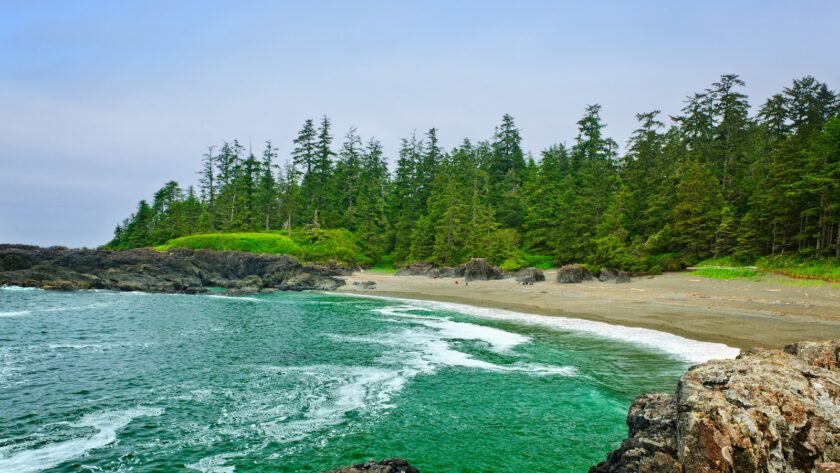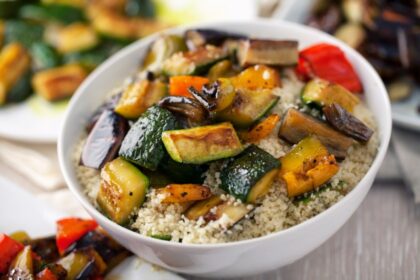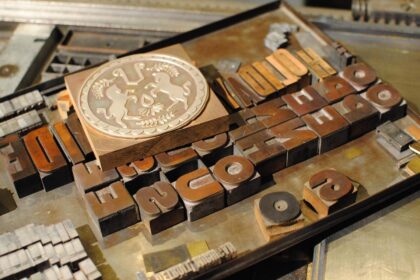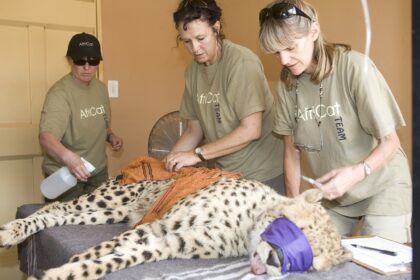
By Kate Robertson
Tofino, British Columbia, has been “doing” ecotourism for years, before it even became a buzzword. In fact, it was logging protests in 1993 that really put this small coastal village at the end of the road on Vancouver Island, Canada, on the map when 856 activists were arrested, garnering it international attention.
Located in the Clayoquot Sound which UNESCO has designated a biosphere reserve and just outside of the Pacific Rim National Park and the Maquinna Marine Provincial Park, this village with a population of 2,000 attracts up to a million visitors annually. In the 60’s, it was a hippie haven which saw the beginning of the surf culture that continues today, putting it on the map as Canada’s biggest and most popular surfer hangout.
Following is a guide to some of Tofino’s best epicurean and adventuresome delights.

1. Start With An Ethical Beach Stay: Wickaninnish Inn
Just 2.5 miles before the village of Tofino, you will find the Wickaninnish Inn which has been voted as the top Canadian resort in Condé Nast Travel Reader’s Travel Awards for 2014 and 2015. This 75-room luxury hotel boasts ocean or beach views from every room and offers direct access to Chesterman Beach (great place for storm watching—more on this later). When the Inn was built on the 100-acre oceanfront property in 1996, their goal was to preserve the natural integrity and build a “green” hotel. On-site trees were surveyed to avoid removing them, and those that had to be removed were used in the construction. The design is “archetypal Northwest Coast style,” combining local fir and cedar timber with driftwood and stone. Sprinkled throughout the premises are works of art from local wood carvers and First Nations artists.
The Inn implements innovative eco-policies like super high efficiency boilers for heating to reduce CO2 emission, electric vehicle chargers (including use of their on-site Lexus hybrid for regular guests), a restaurant that sources local ingredients, a spa that incorporates ecologically responsible ingredients such as local hand-harvested seaweed, and an on-site composter called the Wormmaster, where guests can view the earthworms at work.

1. 100-Mile Dining At Sobo (aka Sophisticated Bohemian)
This restaurant in downtown Tofino started as a food truck behind a surf shop. When it opened its doors as a restaurant in 2003, Sobo was named as one of Canada’s Top 10 Best New Restaurants by Air Canada’s Enroute Magazine, and it’s still going strong. Chef Lisa Ahier describes her cuisine as “grassroots gourmet” and says she looks to see what’s in season and creates from that. She says:
I like to maintain integrity with an ingredient so I use all of it and try not to waste, while showcasing it for what it is. I don’t use any smoke and mirrors. I like simplicity, purity of product, and to honor the person who grew it.
So Chef Ahier knows where her ingredients come from advising that local fisherman, growers and foragers that she knows by name show up at her door regularly to sell their products. For her, good food is about good relationships.

Start your meal with Sobo’s most popular drink: the “Lime Margarita” made with local limes—no bar mix here. Pair it with a bowl of the Smoked Wild Fish Chowder where you will taste a glimpse of Chef Ahier’s spicy Tex Mex roots, or the Halibut Ceviche, a Northwest Coast version of this Latin American classic. For a main, try the Cedar Plank Salmon, cooked to melt-in your-mouth perfection with a dijon maple glaze, served with a potato and yam pave (a French cooking term, roughly translating to cobblestone, or paving stone, so square layers), and seasonal , local veggies. If you have room for dessert, choose the Key Lime Pie made from a recipe that Chef Ahier learned when she ran a pie company in Florida and which she says is the simplest of her desserts, “three or four fresh ingredients is all it takes to make it special and taste good.”
Surroundings are casual with lots of wood and stone, huge windows overlooking the harbor, and an outdoor fireplace that is lit whenever it’s chilly to heat nearby tables. The good news is that now you can make some of the Sobo faves at home as Chef Ahier has written The Sobo Cookbook which includes over 100 of the restaurant’s all-time favorites.

3. Dine Au Naturale At Wildside Grill
Located just out of the village you will find Wildside Grill — featured on Canada’s You Gotta Eat Here Food Network — where commercial fisherman Jeff Mikus and chef Jesse Blake have teamed up to bring you ocean-wise seafood choices like fish and chips straight off their boat or bought from local fisherman friends. The caption on their website says “natural foods from natural dudes” which nicely sums up this grill.
Wildside has an uber cool vibe with its outdoor seating at giant picnic tables under a covered patio made from driftwood for rain or shine dining. Chef Blake advises they chose the outdoor seating, because:
…we wanted to make food for people that just wanted to eat. Initially we were hoping to feed the busy locals, but now we feed world travelers too, with our little shack. Our menu is designed to be the food we love to eat every day, like our cod or salmon tacos, albacore tuna burger, and our loaded panko fried cod club burger.
But don’t leave Wildside without trying their seafood gumbo for a taste of classic Southern with a West Coast twist.
Wildside’s philosophy is to provide the best local seafood while at the same time supporting and sustaining their local community. For this reason, you will regularly see them serving up free fish n’ ships at local events, and year-round they donate their coffee proceeds to the local elementary school’s lunch program and the Rain Forest Education Society, a local society with a mission to help shape an environmentally sustainable future for the region.

4. Locally Sourced Food Products From Tofino Ucluelet Culinary Guild
Tofino Ucluelet Culinary Guild (TUCG) is a local community food sourcing organization dedicated to bringing fresh and high quality ingredients to the West Coast of Vancouver Island. Says Bobby Lax, community food coordinator:
It was started in 2010 by a small group of chefs, restauranteurs, fishermen and other producers to help make it easier for chefs on the West Coast. The idea was to save by shipping together, forging relationships with farmers and fishermen who have integrity in what they do (the TUCG website logo is ‘Honest Food From Passionate People’), but were unable to access a quality driven market, as well as save chefs time by taking over the complicated logistics of shipping food from small producers to the end of the road.
Most of what the TUCG handles are fruits, veggies and wild foods, including mushrooms. About 80% of their food is sourced from Vancouver Island, and most of the balance comes from the province of British Columbia. Individuals can also become members and can purchase the same cases available to restaurants, or they can join the popular Harvest Box Program, “that allows us to utilize a wide assortment of farmers crops, and each week bring the best of the season together in one basket of food,” says Lax.
In May TUCG won an island-wide competition called the “social enterprise catalyst award” and with their $15,000 winnings, they will be setting up a new warehouse to keep building the business.

5. Eat Chocolate (Of Course)
Stop at Chocolate Tofino to sample their handcrafted artisan chocolates and handmade gelato. Owners, Kim and Cam Shaw advise:
We make everything in our little 250 square-foot store. This means everything from tempering chocolate and making caramels and ganaches on our little stove, to hand-juicing berries and lavender blossoms for our gelato. In the summertime it’s not unusual to see six or seven of us running around, baking fresh waffle cones and dipping truffles.
Like most Tofino businesses, they source their ingredients like basil, raspberries, hazelnuts, lavender and honey, locally wherever possible (many from the Tofino Ucluelet Culinary Guild). Coffee beans from Tofino Coffee Roasting Co. are used for their espresso chocolates and gelato. They like to partner locally to use fewer resources and bring amazing products to their doorstep—as opposed to bringing in fruit from South America or salt from across the world.

6. Drink Beer At The Tofino Brewing Co.
Tofino Brewing Co. brews handcrafted, high-quality, small batch beer. The tasting room is open seven days a week, but go on a Friday afternoon for a happy hour feel—the place hops. Not only does the beer taste great, but the premise has a unique architectural design with the kettles, tanks and tuns on one side and the pub-style tasting room on the other. But the best part (other than the beer, that is) is that the front doors roll up so that the inside is completely open to the parking lot—not the best view, but it has a unique rustic industrial charm that works. On the wall on one side of the tasting room are simple, interesting diagrams of how the brew process works, so you will leave knowing a little bit more than when you went in.
Order a tasting flight, which is served up in West Coast style on specially made cedar planks. Make sure it includes the Kelp Stout made with locally harvested kelp giving it “a unique umami-type quality”, or the Spruce Tree Ale, which has been made from fresh picked sitka spruce tips.
In true Tofino style, the brewery implements some great sustainability policies: the used grain goes to feed nearby livestock, their water recovery system allows them to recapture water used in the cooking process, and their electricity is local, coming from a dam outside of nearby Port Alberni. Beer is also sold locally in half gallon “growlers” (big brown bottles), that are refillable to reduce waste and recycling.

7. Learn About The Culture Of The First Nations
The Nuu-chah-nulth First Nations people have made Clayoquot Sound home for 10,000 years or more. The Tla-o-qui-aht Village of Opitsaht on Meares Island, which you can see across the water from Tofino, and just a quick boat ride away, is said to have been continuously inhabited for at least 5,000 years. Go on a First Nations Canoe Tour with T’ashii Paddle Tours in a traditional dugout, hand-crafted cedar canoe with a Nuu-chah-nulth guide, so you can learn about the traditional ways of life and history. Combine it with a guided walk on the Big Tree Trail where you will see 1000-year old cedar trees and old growth rainforest.
The Nuu-chah-nulth community is working hard to keep their history alive through art, stories, and songs. To learn more, visit the Kwisitis Visitor Centre in the Pacific Rim National Park (located a few miles before Tofino) where you will find artifacts, educational displays, and interpretive trails.

8. Discover Local Flora & Fauna At Tofino Botanical Gardens
The Tofino Botanical Gardens are a non-profit organization located on a 12-acre waterfront site on the Clayoquot Sound UNESCO Biosphere Reserve. Their mission is to inspire conservation of the world’s temperate coastal rainforests, and they offer a unique setting to learn about the local natural and cultural history of the area. George Patterson, founder and director, advises that 99% of the gardens’ biomass is indigenous to the world’s coastal temperate rainforests.
Grab a map and go on a self-guided tour. Meander on the paths and boardwalks through the various gardens and forests, all dotted with interesting art installations and buildings like a historical homestead. One of the most recent art installations is by artist Pete Clarkson, entitled “Swept Away” which he is composing from artifacts that have washed up locally ashore (hardhats, boots, and the likes) from the 2011 Japan tsunami, to recreate a wave of debris sweeping through the forest to “honour the tragedy and remind us of our own vulnerability”. Also, currently being constructed is an observatory overlooking the Clayoquot mudflats, which is an estuary for thousands of migratory birds and regularly attracts birdwatchers from all over the world.
Before you leave, stop in at Darwin’s Café, order a cup of tea and a home-baked cookie and browse the books, many of them written by Darwin, or just gaze out to appreciate the gardens and watch for the chickens wandering around. You can also stay at the Eco-Lodge located on the edge of the gardens, which offers affordable bed and breakfast accommodation. There are no televisions or phones in the rooms, and travellers are encouraged, instead, to grab a book from the well-stocked library to learn about gardening, science, and the local environment and history.

9. Check Out Local Wildlife: Go Bear Watching
Book a bearwatching tour with West Coast Aquatic Safaris. A 30-minute boat ride from Tofino through the Clayoquot Sound provides opportunity for viewing black bears, which are in abundance in this area. Because the bears don’t feel threatened by boats on the water, the boats are able to inch close and you get good views of them foraging for their lunch by turning over rocks and boulders (these animals are strong) in search for crabs and other tasty morsels stranded by the low tide. The guides are knowledgeable of the local First Nations history and have an uncanny sense of where to find the bears and other wildlife like bald eagles, sea lions, seals, and porpoises.
Theresia Lee, marketing and communications director, and spokesperson for owner, Keith Phillips, advises:
We always remind our guests that our presence has an effect on the wildlife and their habitat. We ensure we maintain a safe distance of at least 100 metres from them. Crew knows that noise and approaching too fast can be disruptive and often engines are shut off and guests are encouraged to whisper.”\
Tofino businesses work as partners and cooperatively according to Lee, and she emphasizes that their company mandate is to support local vendors and businesses. “This goes beyond being a good neighbour; we encourage ‘shop local’ as part of reducing the collective carbon footprint.”

10. Find Balance With Stand-Up Paddle Board Yoga
Throw on a wetsuit and try your hand (or feet) at stand-up paddle board (SUP) yoga with Dede Monette, founder of Tofino Yoga. Monette describes Tofino Yoga as a “happy marriage between adventure tourism and a deep connectivity to body, mind, and breath. I live in Paradise and I am really excited to share my piece of Paradise with others.”
Monette’s newest offering is Tofino Yoga Custom Retreats, where anyone can book a retreat that fits their personal schedule and budget. Examples of some choices you can make are beach yoga classes, surf lessons, SUP and SUP yoga, and massages.

When To Go
Summer is high season in Tofino and things can get busy, crowded, and of course, exciting, with the influx of people. Businesses, restaurants, and galleries are running at their peak, and this is the best time to catch most of the tours and activities. But don’t overlook winter (November through February) as a great time to visit as well, for a unique experience called “storm watching.” According to Tourism Tofino:
Storm watching is more than a season. It’s a thing to do, and a state of mind. It’s a time when windsculpted shoreside trees yield once again to howling gales and rainfall performs its duty in this temperate forest, taking breaks for joyful sunbursts.

About Kate Robertson
Kate is a Canadian freelance writer and blossoming photographer who contributes to various travel publications. She is a member of The International Travel Writers Alliance and the British Columbia Travel Writers Association. Her writing interests include travel, culture, food & drink, spas, health & wellness, responsible tourism, and epic /off the beaten path adventures. Kate has a passion for active solo travel, and you’ll find her equally ready for adventure in a 5-star hotel or a tent, with pen in hand and ready to write about it. Find Kate on Twitter @kateflyingsolo.
Also Check Out:
How Stylish Recycled Jewelry Is Empowering Women Artisans Around The World [Blog Inspiration]
Free As A Bird Necklace [Travel Style]
Tapping the Power Within: A Path to Self-Empowerment for Women by Iyanla Vanzant [Must Reads]
Jessica Festa
Latest posts by Jessica Festa (see all)
- A Culturally-Immersive Adventure In Mongolia’s Altai Mountains - Jul 8, 2023
- This Recipe Sharing Platform Supports Women In The Culinary Industry (Labneh Recipe Included!) - Nov 5, 2020
- Hiking The Mohare Danda Community Eco-Trek In Nepal - Jun 3, 2020
- 6 Important Questions For Choosing A Responsible Yoga Retreat - May 18, 2020
- How To Create & Grow A Profitable Blogging Business (Ethically) - Jan 18, 2020




